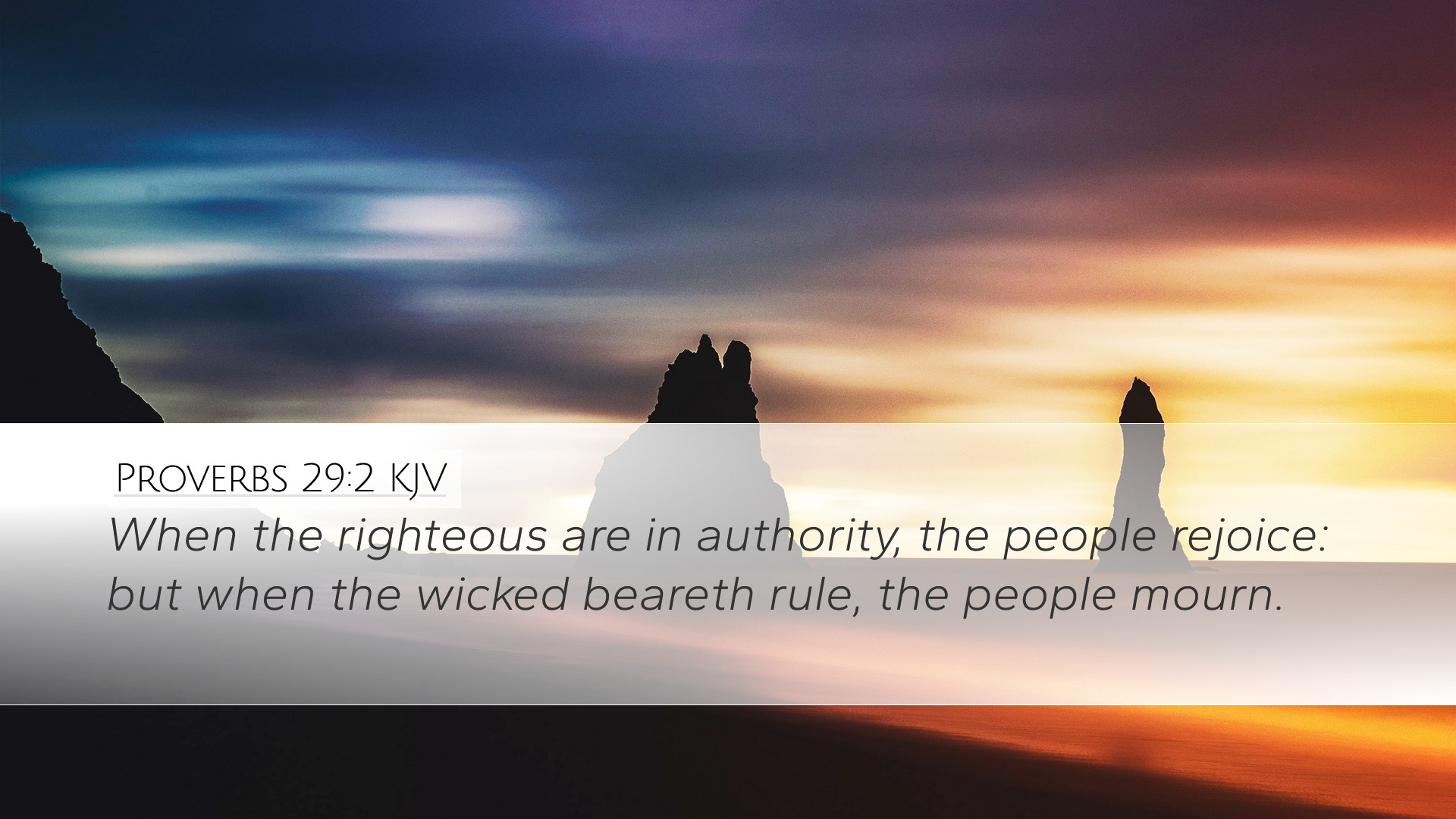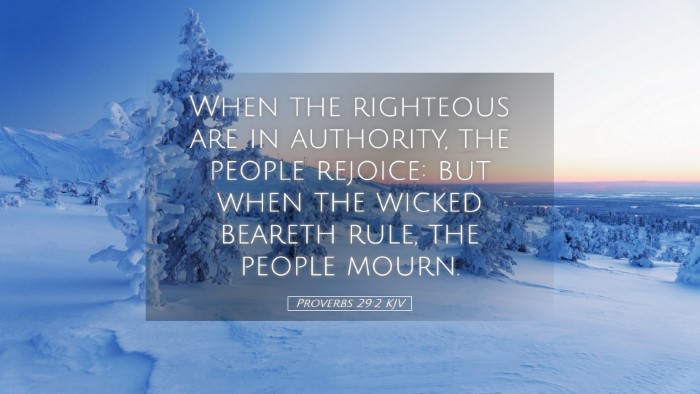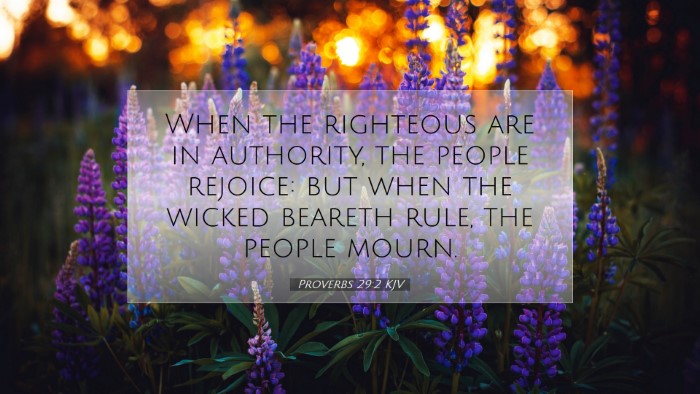Commentary on Proverbs 29:2
Bible Verse: "When the righteous are in authority, the people rejoice: but when the wicked beareth rule, the people mourn."
Introduction
This verse from the book of Proverbs encapsulates a fundamental truth regarding governance and its impact on society. It highlights the contrast between righteous leadership and wicked rule, revealing the direct effects such leaders have on the populace. Insight from various public domain commentaries sheds light on this profound statement, emphasizing its relevance in both historical and contemporary contexts.
Understanding the Verse
The implications of Proverbs 29:2 are significant. Matthew Henry, a noted commentator, explains that this proverb reflects God's design for leadership. Righteous leaders, who govern according to divine wisdom and moral integrity, inspire joy and a sense of security among the people. In contrast, wicked rulers breed desolation and despair, as their actions lead to oppression and moral decay. This verse serves as a reminder of the responsibility that accompanies authority.
The Righteous in Authority
Henry elaborates that 'the righteous' refers not only to those who are just in moral standing but also those who seek to embody God's justice in their decisions. Albert Barnes adds that a government led by the righteous is marked by equity, where truth is upheld, and the needs of the people are acknowledged. Such leadership fosters a collective sense of joy and celebration, as people feel valued and protected under just rulers.
The Response of the People
According to Adam Clarke, the rejoicing of the people under righteous rule stems from their safety and prosperity. When leaders enact policies that reflect divine wisdom, the populace can thrive both economically and socially. The joy mentioned in this passage transcends mere happiness; it is a profound sense of well-being that comes from knowing one is under fair and God-ordained governance.
The Wicked and Their Rule
In stark contrast, the verse warns of the consequences when the wicked bear rule. Henry states that wicked rulers may achieve power through manipulation, oppression, or deceit, leading to widespread mourning and distress among the people. Barnes notes that their governance often results in injustice, corruption, and suffering, causing the populace to lament their conditions. This idea echoes throughout Scripture, reinforcing the Biblical principle that righteousness in leadership is vital for societal welfare.
Applications for Today's Leadership
The insights from this verse and the commentaries are deeply applicable today. In modern society, the call for integrity in leadership remains pertinent. Pastors, theologians, and scholars can examine the characteristics that define righteous leaders and the adverse outcomes of corrupt governance.
The Biblical Standard for Leadership
Both Barnes and Clarke emphasize the necessity for believers to advocate for leaders who demonstrate moral integrity. This advocacy includes not only voting and political engagement but also prayer for leaders to seek wisdom and righteousness in their decisions. The Church should be a prophetic voice, calling for justice and integrity in all levels of governance.
The Collective Response of the Community
Moreover, Henry notes that the community's role in promoting righteousness is crucial. Believers are challenged to embody the principles of justice and mercy in their interactions with others. This can create a cultural shift that impacts the political sphere, ultimately leading to a society where the righteous can lead with integrity.
Conclusion
In summary, Proverbs 29:2 serves as a powerful reminder of the moral imperatives surrounding authority. The collective message from Matthew Henry, Albert Barnes, and Adam Clarke underscores the blessing that righteous governance brings to society and the sorrow that arises from wicked leadership. Believers and leaders are urged to reflect on these truths, seeking to cultivate a culture that prioritizes righteousness in leadership for the flourishing of all people.


